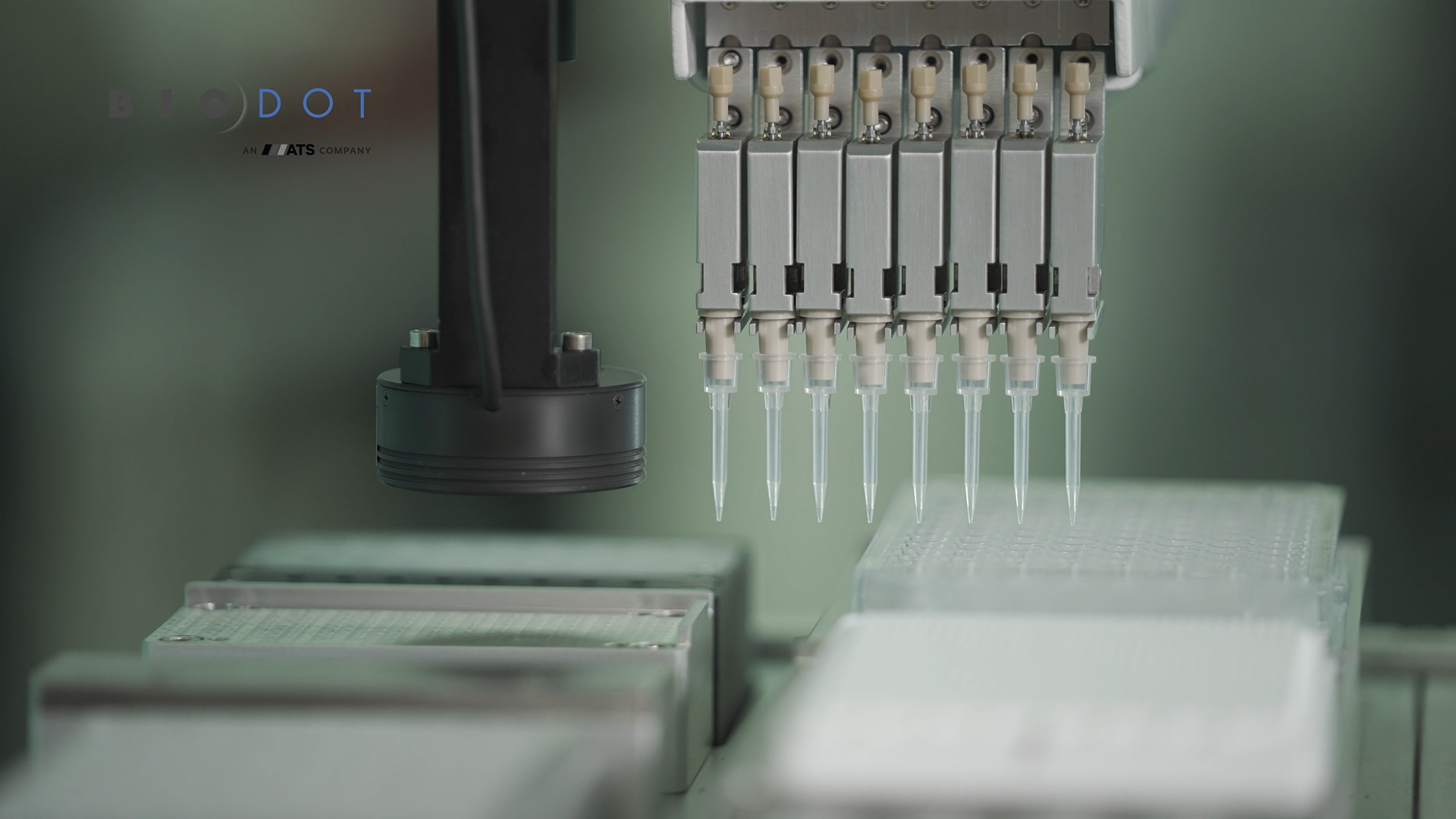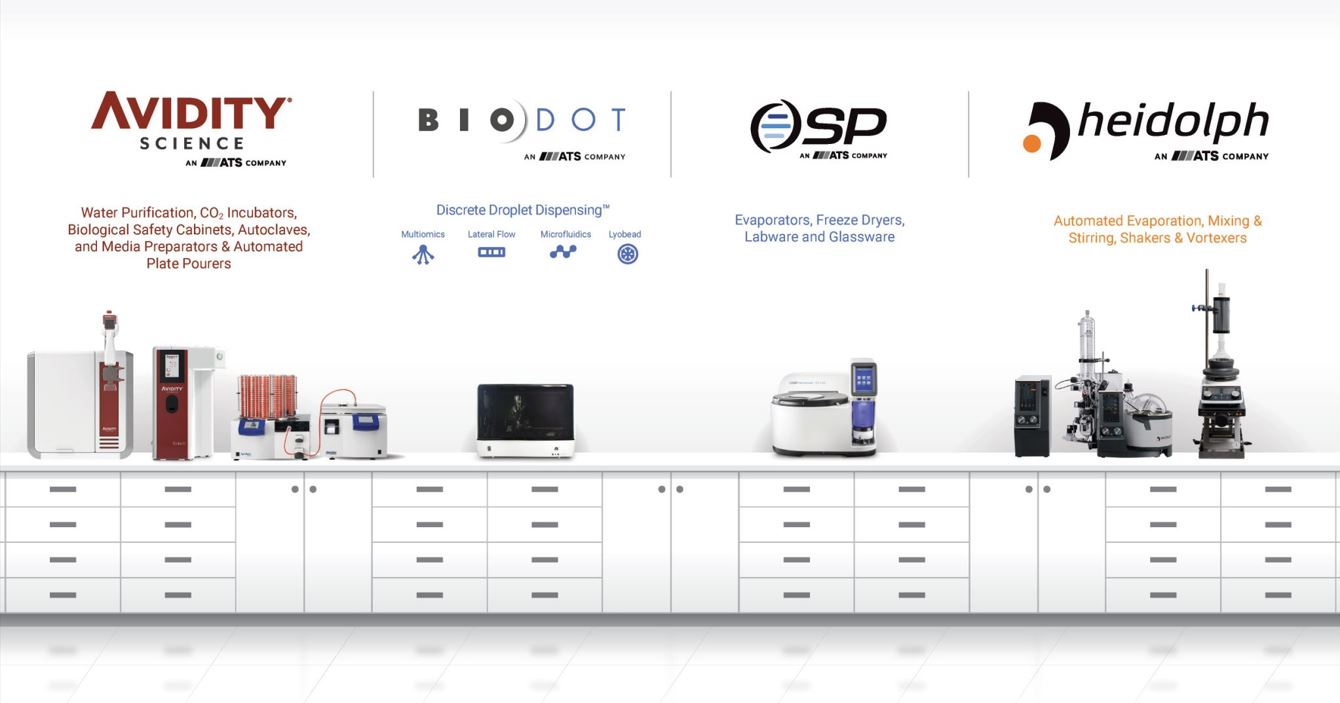Accelerated Dispensing with MODULIS™: An interview with Brian Kirk

We sat down with Brian Kirk, BioDot’s VP of Strategy & Product Development to discuss the MODULIS™, a new liquid dispensing instrument that can convey products between multiple dispensing modules.

This interview has been edited for clarity and brevity.
---------------------------------
BD: Tell me about the MODULIS™ instrument. What is it?
BK: The MODULIS™ is a platform that integrates one or several standalone workstations into a conveyor system. These workstations utilize BioDot’s dispensing technologies, such as the BioJet™ nanoliter dispenser. We've combined our dispensing workstation with the smart conveyance of SuperTrak™ technology (from ATS). This allows for individual shuttle control and exact placement, allowing accurate dispense placement.
BD: Why develop the MODULIS™?
BK: We’ve seen the diagnostics industry expand in complexity for several years, and two big things are happening:
- The devices themselves are becoming smaller, which requires placement precision and volume accuracy – companies need to dispense microliter, nanoliter, or picoliter droplets onto surfaces as part of the manufacturing process.
- The variety of chemistries needed to make new devices are expanding. We’ve observed customers needing upwards of 100 different chemistries applied to a device as part of the diagnostic tool. If all those chemistries are tied into a single dispense station, it's incredibly slow and tedious.
By taking a conveyor and incorporating several standardized dispense modules, you can greatly increase your capacity and divide up the work. With one dispense station, it would take a certain amount of time to finish a batch of devices. If you have two stations doing half the work simultaneously, now you can do it in half the time or faster because fewer chemistry changes are required.
Thus, the MODULIS™ is scalable and we can implement eight or more dispense stations working simultaneously. Cycle times are now 8 times faster than the original cycle.
BD: What's unique about the SuperTrak™ conveyance technology?
BK: SuperTrak™ uses fast (up to 4 m/s) and accurate (<10 microns) conveyance technology. The combination of speed and accuracy is critical to dispensing the small volumes we work with at BioDot.
Additionally, the SuperTrak is capable of independent shuttle control. When you think of a conveyor system, there's typically a single drive system that moves parts from station to station in a linear fashion. Everything moves at the same time and at the same pace. With the SuperTrak, you can have shuttles/pallets at different stations, moving at different speeds. One can be stopped for operations at a workstation while another is moving into a queue for that workstation. That gives us a lot of flexibility when designing a workflow.
BD: When will the MODULIS™ be available? How long is the lead time?
BK: MODULIS™ is available now and we will work with interested companies to design platforms. Because these are larger instruments, they are not off-the-shelf solutions. We start our design phase by learning our clients’ current workflow and needs so that we can correctly design the system. Because we designed the MODULIS to be built with modules, we can design a tailored system without custom engineering. The modular stations can scale based on the application. Once we understand the workflow, design and construction can take anywhere from 12 to maybe 18 weeks. For automation of this scale, that is a game-changing lead time.
BD: Can you tell us more about BioDot and ATS?
BK: BioDot has been involved in nanoliter and picoliter dispensing technology for almost 30 years. We started developing non-contact dispensing technologies for people producing with diagnostic formats such as lateral flow and flow-through devices.
Since then, diagnostics has evolved dramatically and now we make equipment that produces diagnostics like biosensors and microfluidics. These applications require single droplets in incredibly small devices such as microwells or channels. BioDot is a dispensing and automation company that is really focused in the life sciences and diagnostics fields.
ATS is the world's premier partner for high-volume manufacturing and automation. They have incredible expertise integrating and managing automation. They provide manufacturing solutions to some of the world's greatest brands.
About the Interviewer

Wesley Thio is an Associate Product Marketing Manager at BioDot Inc. He obtained his B.S in Electrical and Computer Engineering at The Ohio State University in 2018 and his M.S in Electrical and Computer Engineering at the University of Michigan. His research studies in chaotic circuits, batteries and AI accelerator hardware have resulted in no less than a dozen publications, several patents and the textbook Elegant Circuits: Simple Chaotic Oscillators. He won Ohio State’s Next Generation Innovator award in 2018.





